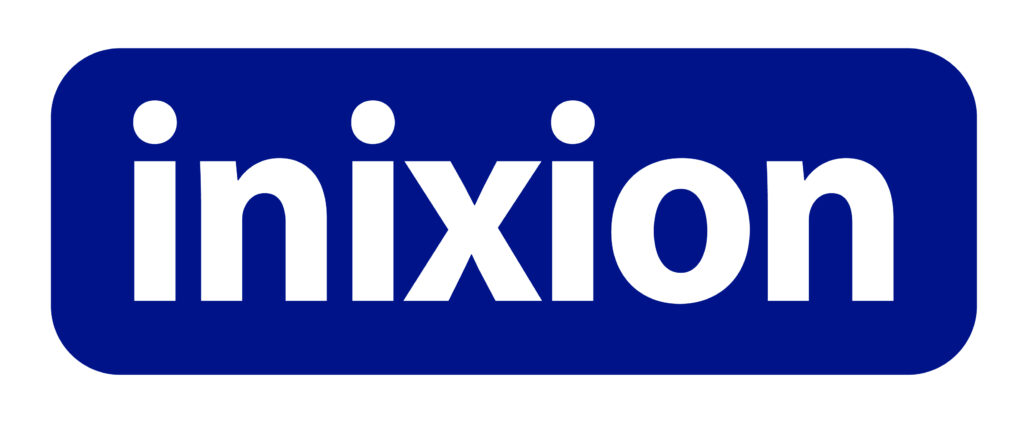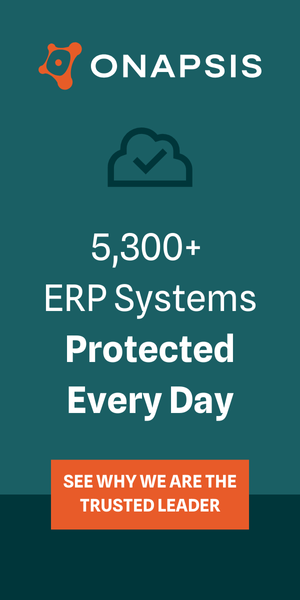Microsoft has announced the availability of Dynamics 365 Finance version 10.0.43 in March 2025. Microsoft Dynamics 365 Finance has established a notable presence in the ERP market. The last time Microsoft shared in 2020, more than 4,500 organizations utilize Dynamics 365 for Finance and Operations, representing about 0.4% of the ERP market share. These organizations predominantly operate within the Information Technology and Services sector (28%) and the Computer Software industry (9%). Geographically, 38% of these companies are based in the United States, with an additional 8% located in the United Kingdom. In terms of company size, 22% are small enterprises with fewer than 50 employees, 47% are medium-sized businesses with 50 to 200 employees, and 31% are large organizations with over 1,000 employees.
The table below lists the features that are included in this release when available.
| Module or feature area | Feature name | More information | Enabled by |
|---|---|---|---|
| Accounts receivable | Return orderliness invoice support through dual-write | New entities and new mappings are available in Dynamics 365 Finance to sync return orders invoice from Finance to the customer's environment. | Default |
| Budget control | Enable Non-retrievable purchase orders page for purchase order year-end process | If this feature is enabled, users can validate the reason why specific purchase orders aren't available for purchase order year end processing on the Non-retrievable purchase orders page. | Feature management |
| Cash and bank management | Enable process automation for accounts receivable and accounts payable foreign currency revaluation | This feature introduces accounts payable and accounts receivable foreign currency revaluations process automation. | Feature management |
| Cash and bank management | Enable offset account financial dimensions for general ledger voucher posting during bank account reconciliation | By enabling this feature, users can define offset financial dimensions for general ledger voucher that is posted manually during bank account reconciliation or automatically if reconciliation rule for voucher generation is created. | Feature management |
| Cash and bank management | Payment journal cancellation from bank reconciliation worksheet | Cancel customer payment journals directly from the Modern bank reconciliation worksheet. It simplifies the reconciliation process by enabling easy reversals and ensuring accurate financial records. | Feature management |
| Subscription billing | Performance improvement for consumption quantity update | This feature enhances the performance of recurring contract billing when the consumption quantity is updated on the billing detail line for a usage-based billing schedule line. | Feature management |
| Electronic reporting | (Preview) In-app PDF conversion for configurable business documents | This feature facilitates the seamless conversion of configurable business documents from Word or Excel formats to PDF. It supports a wide range of business scenarios and gives users the flexibility to generate and distribute professional-grade PDF documents directly in the app. Because this feature uses Application Object Server (AOS) resources, external conversion services aren't required. By taking advantage of in-app capabilities to ensure efficient and secure document processing, this feature reduces dependency on third-party tools while it also maintains high performance and reliability. | Feature management |
| Regulatory reporting | (Production ready preview) Security enhancements in UK MTD VAT integration (cloud-based deployments only) | This feature is a Production Ready Preview feature for companies that use direct integration of their cloud-based Finance instance with Making Tax Digital for Value-Added Tax (MTD VAT) APIs of His Majesty's Revenue and Customs (HMRC). When you enable the feature, your UK MTD VAT TEST and UK MTD VAT returns electronic messaging processing is automatically updated to enhance the security of your Finance integration for direct VAT return submissions for your UK VAT registration. The following actions of the Web service type were changed to executable classes: retrieve VAT obligations, test retrieve VAT obligations, submit VAT return, test submit VAT return, request VAT liabilities, and request VAT payments. After this feature is enabled, it can't be disabled. | Feature management |
| Regulatory reporting | (Preview) SAF Accounting Books Income Tax - JPK_KR_PD | JPK_KR_PD (Jednolity Plik Kontrolny – Księgi Rachunkowe Podatnika) is a new reporting standard in Poland that is mandatory for businesses as of January 1, 2025. It requires that taxpayers submit detailed accounting books in a structured electronic format. Large taxpayers must report the new SAF Accounting Books Income Tax - JPK_KR_PD for the first time in March 2026, which is their deadline for filing their 2025 tax returns. | Electronic reporting (ER) configurations |
| System Administration | Master Company Data Sharing | Master company sharing, also known as single record sharing (SRS), is a concept where a single physical record belonging to a master company is virtually shared across child companies. Create, update, or delete in any company in the policy updates the single records used across all companies. After this feature is enabled, it can't be disabled. | Feature management |
Feature enhancements included in this release
The table below lists the enhancements that are included in this release when available.
| Module or feature area | Feature name | More information | Enabled by |
|---|---|---|---|
| Accounts receivable | (Japan) Default value for the sales tax adjustment transaction posted in the consolidated invoice process | When this feature is enabled, a default value is set for the method of payment, terms of payment, and due date on the sales tax adjustment transaction during posting for the consolidated invoice process in Accounts payable and Account receivable. | Feature management |
| Accounts receivable | Removal of duplicate and overlapping indexes | Removal of duplicate and overlapping indexes reduces a spacing issue in the database and therefore increases efficiency. | Default |
| Accounts receivable | Financial dimension posting error on sales orders | This feature ensures that the financial dimensions for automatic transactions inherit the financial dimensions from the sales order. Therefore, it fixes an issue that is caused by missing financial dimensions during posting to the rounding difference account from a sales order. | Feature management |
| Accounts receivable | Improve the performance of settlement and selection of invoices for matching | A performance improvement addresses the delay in enabling Post during the settlement and selection of invoices for matching. | Default |
| Cash and bank management | Modern bank reconciliation | When the Modern bank reconciliation feature is enabled, customers can define offset financial dimensions when generating a general voucher and payment journal during bank reconciliation process. | Feature management |
| Cash and bank management | Partial netting | The Allow partial netting parameter lowers the netting amount when there's only one customer invoice and one vendor invoice marked. | Parameters |
| General Ledger | Enable financial tags for Accounting source explorer | This feature extends the financial tags feature and enables tags in Accounting source explorer. | Feature management |
| General Ledger | Navigate to the original document from Documents pending accounting | This change allows navigation back to the original document that's found on the Documents pending accounting page. | Default |
| General Ledger | Default dimension sharing enabled for master company sharing | This change allows default dimension data to be included in the master company sharing functionality. This is enabled for dimensions that are defined as global values. | Default |
| Fixed assets | Automate split transaction posting from main book to derived books | When a fixed asset split transaction is posted to the main asset book, a corresponding split transaction is generated and posted to the designated derived books, based on the configuration set in the Asset book page. | Feature management |
| Fixed assets | Propagate the Allow depreciation when placed in service and disposal are in the same fiscal year from fixed asset parameters for all newly created asset books. | The Allow depreciation when placed in service and disposal are in the same fiscal year option is visible on Fixed assets parameters and the default for newly created asset books. | Feature management |
| Subscription billing | Mass stubbing | The Mass stubbing page is updated with an Add renewal term button. This button can be used to add a renewal term for usage billing schedule lines that are set for automatic renewal. | Default |
| Subscription billing | Generate invoice | Performance is improved during the creation of an invoice proposal for billing schedule lines that are deferred. | Default |
| Tax | Enable applicability rules value lookup for tax calculation | This feature enables applicability rule value lookup for tax calculation. Users can select conditions and output values by using a dropdown list instead of entering free text. This feature is controlled by the Enable lookups in applicability rules parameter in Tax feature setup. | Parameter |
| Tax | Calculate GST based on invoice account | This functionality is controlled by the Calculate GST based on invoice account parameter in Accounts payable parameters and Accounts receivable parameters. | Parameter |
| Tax | Tax calculation maintenance mode | This functionality lets administrators enable maintenance mode for the tax calculation feature. In this mode, if a draft version of the selected tax calculation feature exists, it's used for tax calculations. Important: The functionality is controlled by the TaxIntegrationEnableMaintenanceModeFlight flight. We recommend that you use tax calculation maintenance mode only in sandbox environments. | |
| Tax | Withholding tax performance improvement | Performance of the withholding tax calculation process is improved when customer or vendor invoices are settled. | |
| Tax calculation - Universal tax rate API | Support setting up flexible fields label and help text | A new Sync flexible field labels API is introduced in the tax feature. This API lets independent software vendors (ISVs) define flexible field labels and help text in multiple languages. | |
| Tax | Interval tax calculation | The Interval calculation method is now supported when the Enable advance tax calculation parameter is enabled on the Tax calculation parameters page. | |
| Tax | Advance invoices for Eastern Europe integration | Tax calculation is supported in advance invoices when the Journal business process is enabled on the Tax calculation parameters page. | Parameter |
| Tax | Interest note and collection letter integration | Tax calculation is supported in interest notes and collection letter journals when the Interest and collection business process is enabled on the Tax calculation parameters page. | Parameter |
Features turned on by default in this release
The following table lists the features that are turned on by default in version 10.0.43. Most features that were turned on automatically can be turned off in Feature management. In the future, some features that were turned on automatically might be removed from Feature management and become mandatory. This change ensures that customers are using current functionality, so that as enhancements are added, they can build on the current functionality. Features are never automatically enabled in less than one year, unless they’re determined to be essential.
| Feature name | Feature state | Module |
|---|---|---|
| Advanced bank reconciliation improvement - enable filtering and provide separate grid for new transactions | Mandatory | Cash and bank management |
| Foreign currency revaluation performance improvements | Mandatory | Cash and bank management |
| Customer and vendor netting | On by default | Cash and bank management |
| Performance improvement for Vendor payment BI report | On by default | Cash and bank management |
| Modern bank reconciliation | On by default | Cash and bank management |
| Enable batch mode for bank statement and bank statement line posting in advanced bank reconciliation | On by default | Cash and bank management |
| Automatic clear bridged transactions through advanced bank reconciliation | On by default | Cash and bank management |
| Skip reversal flag validation when matching reversal bank statement lines | On by default | Cash and bank management |
| Enable bank reconciliation reversal even new transactions exist in posted bank statement | Mandatory | Cash and bank management |
| Enable exchange rate types for sales tax | On by default | Tax |
| Packing slip date as the delivery date for the advanced Tax calculation (tax rate determination) | On by default | Tax |
| Selection of advance invoices for reversing while posting sales order credit note | Mandatory | Accounts receivable |
| (Lithuania) Don't add the VAT keyword to the beginning of the invoice title | Mandatory | Accounts receivable |
| Enable tax adjustment on consolidated invoice for Japan | On by default | Accounts receivable |
| Prevent fixed asset acquisition from project purchase order when business rules for fixed assets determination are configured | Enabled by default | Fixed assets |
| (Belgium) Fixed Asset report - Enable fiscal calendar filter | Mandatory | Fixed assets |
| (Japan) Use asset depreciation rates for depreciable asset declaration report calculations | Mandatory | Fixed assets |
Features removed from Feature management
The following table lists the features that were removed from Feature management in version 10.0.43.
| Feature name | Feature state | Module |
|---|---|---|
| Tax setup validation | The related functionality is enabled out of the box. | Tax |
| Enable Globalization feature setup for Tax calculation service | The related functionality is enabled out of the box. | Tax |
| Tax in transfer order | The related functionality is enabled out of the box. | Tax |
| Deprecated obsolete code for shared Accounts receivable and Accounts payable invoicing localization | The related functionality is enabled out of the box. | Accounts receivable |
| Deprecated obsolete code for Accounts receivable | The related functionality is enabled out of the box. | Accounts receivable |
| (Mexico) Add fields for customs information on free text invoice lines | The related functionality is enabled out of the box. | Accounts receivable |
| Reset the workflow status for free text invoices from Unrecoverable to Draft | The related functionality is enabled out of the box. | Accounts receivable |
What this means for ERP Insiders
Finance installed base includes some heavy-hitters. While less than a third of the Microsoft Dynamics 365 Finance installed base are large enterprises with greater than 1,000 employees, Microsoft has seen significant adoption among large organizations worldwide. Several notable enterprises have implemented Dynamics 365 Finance to enhance their financial operations. The Department for Work and Pensions (DWP), the UK’s largest government department, employing approximately 90,000 individuals, utilizes Dynamics 365 Finance to manage its extensive financial processes. Tesla, the American automotive giant, with over 140,000 employees, has integrated Dynamics 365 Finance to streamline its financial management systems. Brookfield Corporation, a Canadian banking and financial services company, employing around 202,500 people, leverages Dynamics 365 Finance for its financial operations. General Electric Company, the U.S. professional services organization, with a workforce of 125,000, has adopted Dynamics 365 Finance to enhance its financial processes. And John Deere, the U.S.-based manufacturing leader, employing 83,000 individuals, uses Dynamics 365 Finance to manage its financial operations.
Prepare properly for 10.0.43. When considering the adoption of Microsoft Dynamics 365 Finance version 10.0.43, it’s important to be aware of certain considerations. Some functionalities in this release are available as part of a preview. These features are subject to change and may not be fully supported in production environments. It’s advisable to thoroughly test these features in a non-production setting before full deployment. Microsoft periodically deprecates older features in favor of improved functionalities. For instance, the Revenue Recognition feature was deprecated after April 2023, with customers encouraged to transition to the Subscription Billing module. It’s essential to review the list of deprecated features to understand any potential impact on your operations. Also, users have reported issues during the upgrade process. Specifically, an error stating, “Preparing this environment for servicing has failed,” was encountered when updating from version 10.0.41 to 10.0.43 in a development environment. Ensuring that your environment is properly configured and accessible can help mitigate such issues. Before implementing version 10.0.43, it’s recommended to conduct comprehensive testing in a controlled environment, review all relevant documentation, and ensure that your system configurations align with the new version’s requirements.
Microsoft maintains strong R&D push. Microsoft’s allocation of its R&D budget across the Dynamics 365 portfolio reflects its commitment to innovation and addressing evolving customer needs. While specific budgetary allocations for individual Dynamics 365 applications are not publicly disclosed, several key focus areas can be identified. Microsoft has made substantial investments in AI and cloud technologies, which are integral to the Dynamics 365 suite. For instance, in April 2024, Microsoft announced a $2.9 billion investment in AI and cloud infrastructure in Japan, aiming to enhance information sharing, talent development, and technology solutions. The company maintains a significant global R&D presence, with over 6,000 scientists and engineers in the Asia-Pacific region alone, focusing on fundamental research, technology incubation, and product development. Microsoft’s R&D efforts are directed towards the regular enhancement of the Dynamics 365 portfolio, including applications like Finance, Supply Chain Management, and Customer Service.




